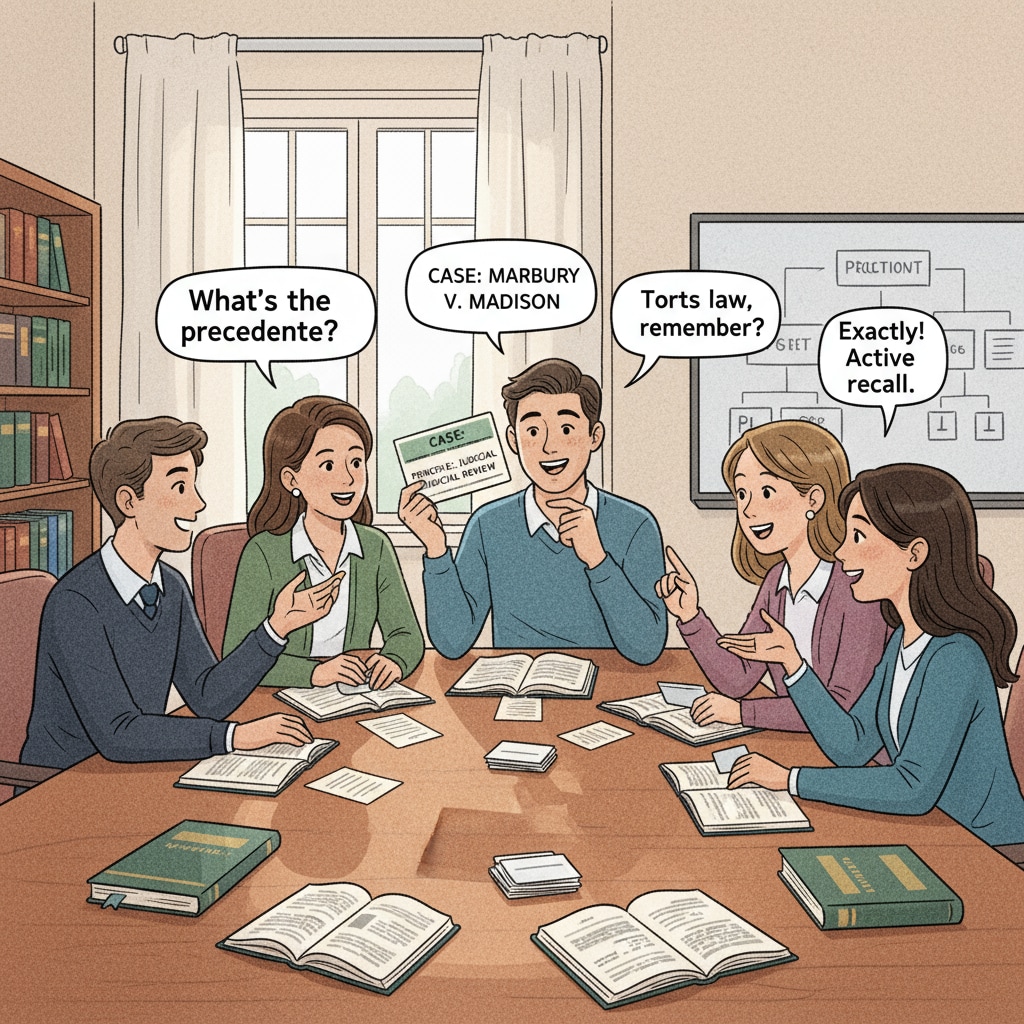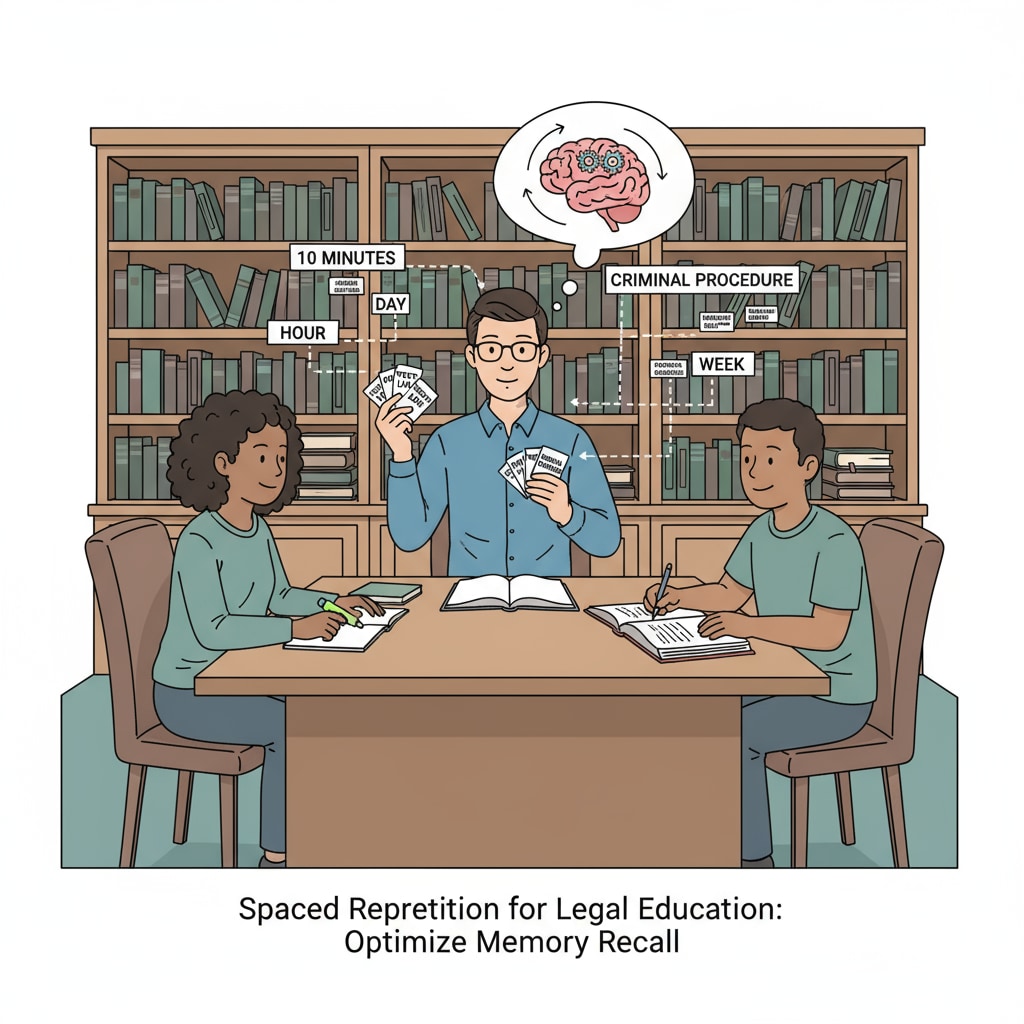In the realm of legal learning, the shift from passive reading to active recall and spaced repetition is nothing short of a revolutionary approach. These methods are not only reshaping how law students acquire knowledge but also significantly enhancing their retention and understanding.

The Limitations of Passive Reading in Legal Learning
Passive reading has long been a staple in legal education. Law students often spend hours poring over textbooks, statutes, and case law. However, this method has its drawbacks. For example, research has shown that simply rereading materials multiple times doesn’t necessarily lead to better understanding or long-term memory. According to Learning psychology on Wikipedia, passive reading lacks the engagement needed to truly internalize complex legal concepts. As a result, students may struggle to recall information during exams or when applying it in real-world legal scenarios.
The Power of Active Recall in Law Studies
Active recall is a game-changer in legal learning. Instead of passively reading, students actively test their knowledge. This could involve creating flashcards with legal terms and definitions, summarizing case facts in their own words, or engaging in group discussions where they explain legal concepts to their peers. A study has indicated that just 15 minutes of active recall learning can be more effective than 2 hours of repeated reading. This approach forces the brain to retrieve information, strengthening neural connections related to legal knowledge.

Spaced Repetition: Enhancing Memory in Legal Education
Spaced repetition complements active recall in legal learning. It involves reviewing learned material at increasing intervals over time. By doing this, students move information from short-term to long-term memory. For instance, a law student might review a set of flashcards with legal principles every few days initially, then extend the intervals to weeks or months. This aligns with the principles of memory consolidation as explained in Memory consolidation on Britannica. Spaced repetition ensures that legal knowledge is not only learned but also retained for the long haul.
In conclusion, legal learning is evolving, and the transition from passive reading to active recall and spaced repetition is an essential step. These methods empower law students to take control of their learning, improve their understanding of legal concepts, and better prepare for their future legal careers.
Readability guidance: This article uses short paragraphs and lists to summarize key points. Each H2 section provides relevant information. The proportion of passive voice and long sentences is controlled, and transition words are added throughout for better flow.


